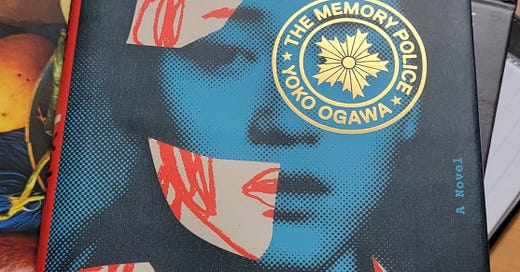Oh Juneuary! Here you are right on schedule with your cold and rainy days and yet the bees still buzz around my California lilac all day long.
Sunday recipe: Ultimate Peanut Butter and Chocolate Chip Cookies
I am swiping this recipe from my brother-in-law (former head chef at Bishop’s so you know it’s good) because it is in continual rotation around here. The addition of whole peanuts is genius. A few days ago we ran out of peanuts and subbed chopped mixed nuts instead. Also genius.
Ingredients
1 cup butter
1 cup brown sugar
2 eggs
1 tsp vanilla
1 cup natural peanut butter
2 cups flour
1 tsp baking soda
1/2 tsp salt
1 cup chocolate chips
2 cups salted peanuts
Directions
Preheat oven to 350.
Cream together butter and brown sugar until fluffy. Add peanut butter and mix until well combined.
Add eggs and vanilla and mix until smooth.
Mix flour, baking soda, and salt, and add to peanut butter mixture. Stir until just incorporated.
Add peanuts and chocolate chips and stir gently until combined.
Scoop into 3 tbsp (45 mL) balls and place on baking sheets lined with parchment. Flatten lightly with a fork.
Bake for 15-20 minutes, until golden brown on the bottom. Allow to cool for 5 minutes, then remove and place on a rack to cool completely
Book notes: The Memory Police
Who are we when the objects we identify with cease to exist?
On an unnamed island, items disappear entirely and forever. One day it is ribbons, then it is bells, and then it is birds which simply cease to sing one morning and fall from the sky to be collected by the Memory Police. How do things disappear? We never find out. The disappearances are ruthless and haphazard, following no logical order. The citizens of the island must forget the thing had ever existed, and within a day of the official disappearance, are required to to bring out their possessions for seizure and destruction. Those who do not comply are taken away in the night. To where, no one knows.
One morning you’ll simply wake up and it will be over, before you’ve even realized. Lying still, eyes closed, ears pricked, trying to sense the flow of the morning air, you’ll feel that something has changed from the night before, and you’ll know that you’ve lost something, that something has been disappeared from the island.
Against the increasing pace of this mysterious force of disappearance, the tale of our unnamed narrator unfolds. We see the world in first person through her solitary existence and the words of the novel she is writing (an allegory inside an already allegorical tale). She lives alone in the family home. Her father is deceased, her mother murdered by the Memory Police several years prior for the crime of being unable to forget the world disappearing around her. Her main connections are a former ferryman who lives on a boat that is now rendered unintelligible to them (boats having disappeared), and her Editor. Early in the story she discovers this Editor, like her mother, does not forget the missing items and helps to hide him away to keep him safe from the Memory Police. It is around this that the central drama of the novel unfolds.
Because things are disappearing more quickly than they can be created, the island-world is becoming impoverished. It is a world without replenishment though sometimes a trace of what is lost remains, even among those without the capacity for remembering.
My memories don’t feel as though they’ve been pulled up by the root. Even if they fade, something remains. Like tiny seeds that might germinate again if the rain falls. And even if a memory disappears completely, the heart retains something. A slight tremor or pain, some bit of joy, a tear.
Yoko Ogawa’s novel The Memory Police was first published in Japanese in 1994, but wasn’t translated into English until 2019. In 2020 it was shortlisted for the Booker, and I found my way into this novel during the pandemic, when the idea of loss was thick in our culture. Though it dwells on loss, Ogawa’s prose is transporting and beautiful, frequently described as dream-like. The world she takes us into is chilling, but her characters never give way to despair which keeps things from getting too miserable despite the facts before them.
You have to stop worrying about things like that. The disappearances are beyond our control. They have nothing to do with us. We’re all going to die anyway, someday, so what’s the difference? We simply have to leave things to fate.
On first read, I approached this as an Orwellian commentary on authoritarianism. Besides the main story, the novel-within-the-novel also deals with themes of power and control, loss of voice and agency. But returning to it now, it strikes me that Ogawa’s work is less a political statement, and more a visceral description of dementia; the island is the self, forgetting more and more until it disappears altogether. Bodily control is forfeit to the Memory Police, and even though characters attempt to hold on, they are forced to re-orient to the continual present in response to cataclysmic events such as the disappearance of seasons, and a massive earthquake.
But in a world turned upside down, things I thought were mine and mine alone can be taken away much more easily than I would have imagined. If my body were cut up in pieces and those pieces mixed with those of other bodies, and then if someone told me, “Find your left eye,” I suppose it would be difficult to do so.
Perhaps it is not authoritarianism or dementia which Ogawa draws our attention to in The Memory Police, instead challenging our fixed sense of self and delving into the impermanence which lies at the core of human and worldly existence. No matter the philosophical orientation, this was a read that got right down into me and stayed there. Ogawa’s words drift and linger, asking us how we define ourselves in a world we don’t control.
Vowing
When feeling crowded by others
I vow with all beings
To expand through my breath
And take everything in.
And finally
This past week I took the words “To be human is to live in calamity” into my meditation practice. First uttered by Ling Xian, a female Zen ancestor, 2000 years ago - we can hear them as true across our history as we unearth old graves and dig new ones in these weeks of early summer. May all beings find peace despite the wreckage of colonialism and violence on which we stand.
You can leave a comment or like this post below. Liking my post helps get it wider distribution in the Substack network, so if any of this resonates with you, please click the things. Sharing with others is another way to support my work.
If you want to hear more from me, find my blog at http://red-cedar.ca or follow me on instagram @birdsongworkshop - otherwise, I’ll see you here at the end of the month!





